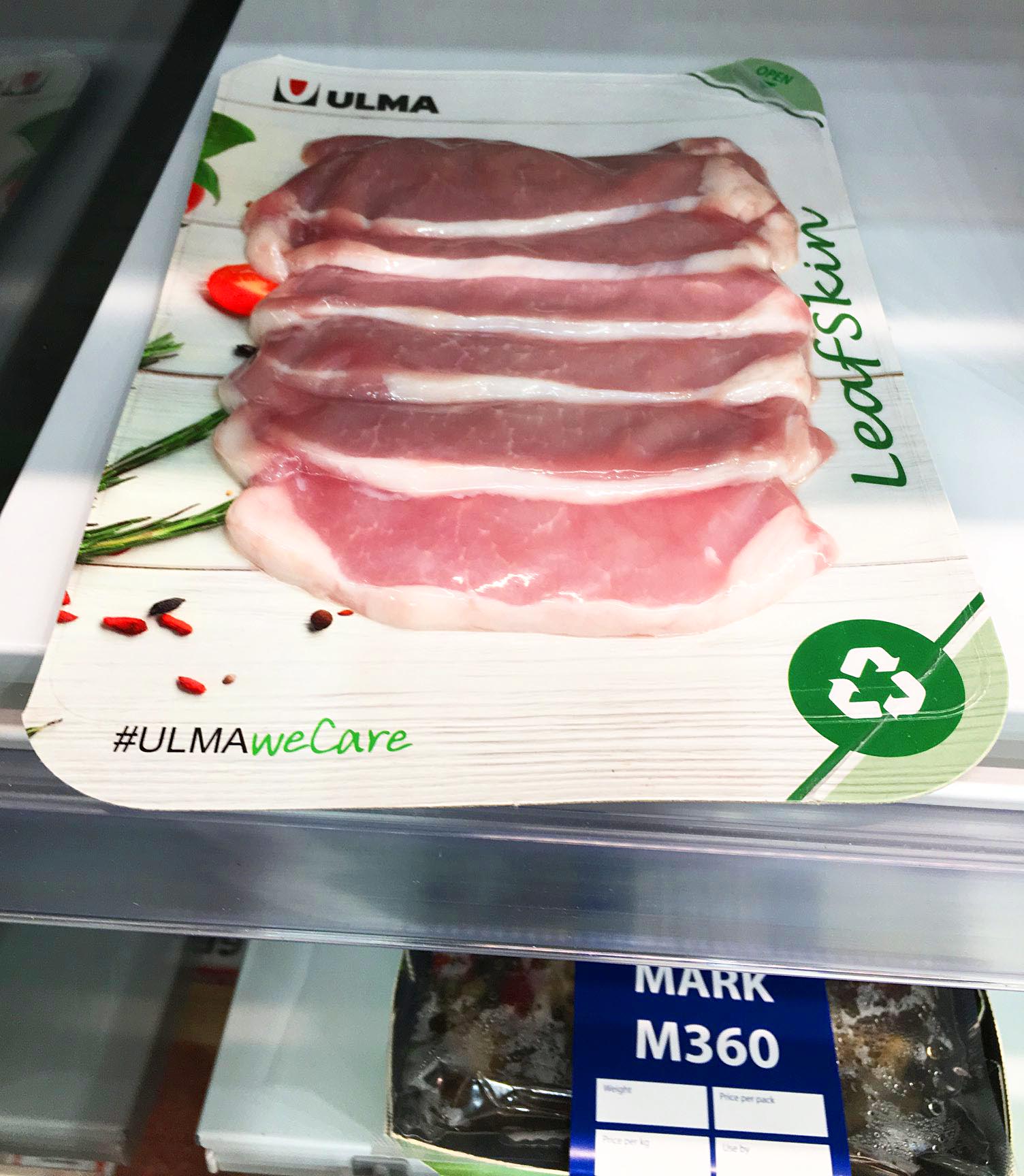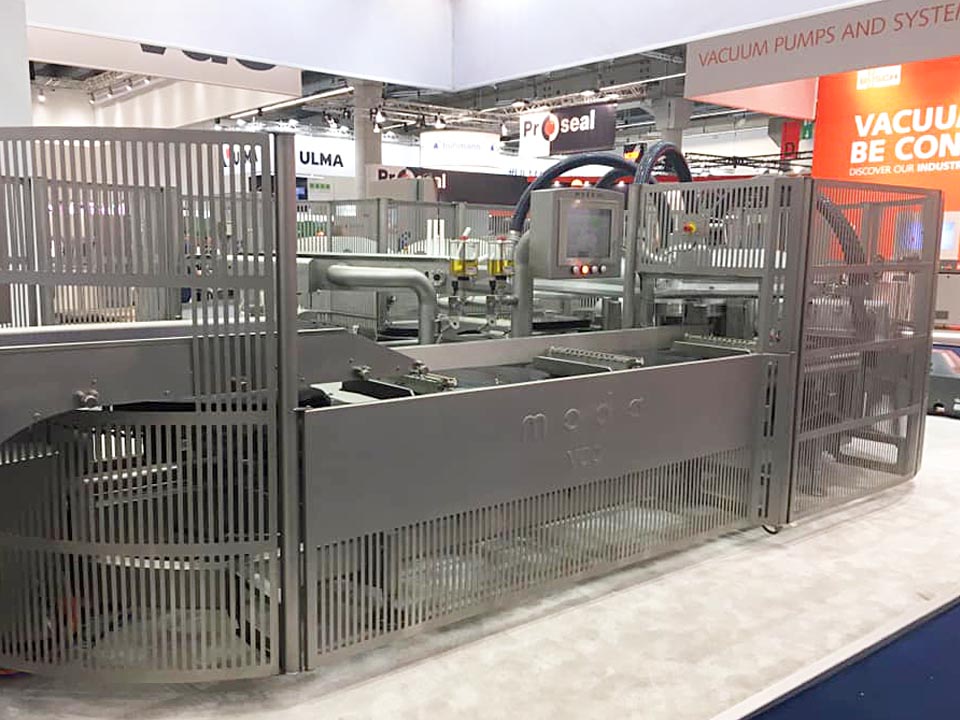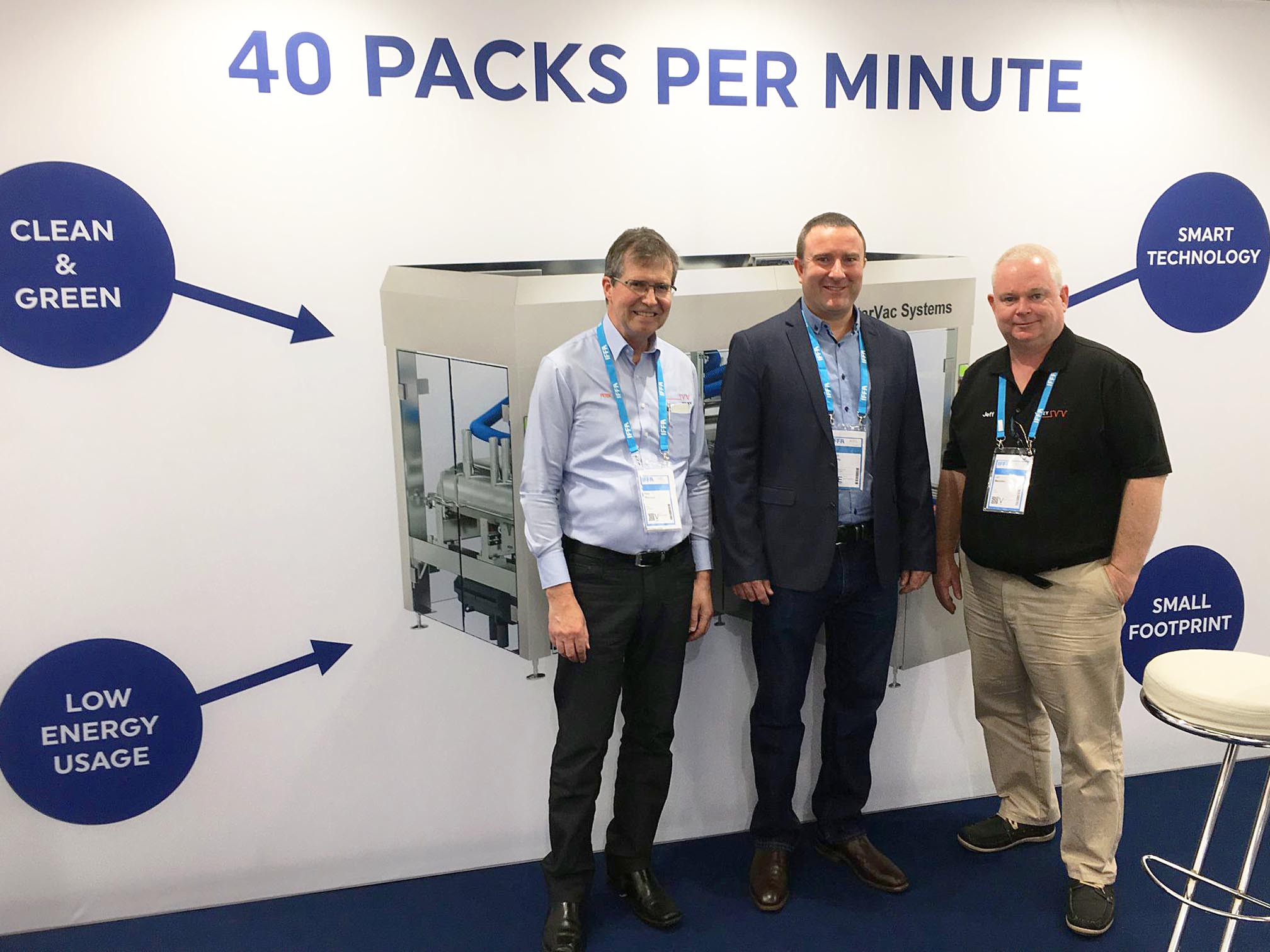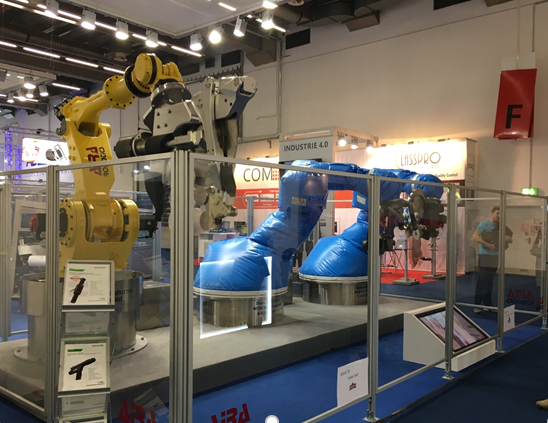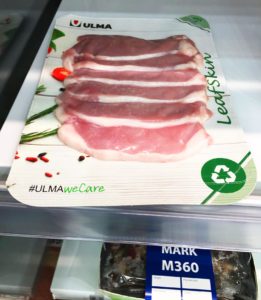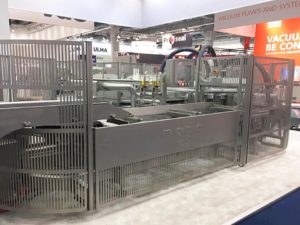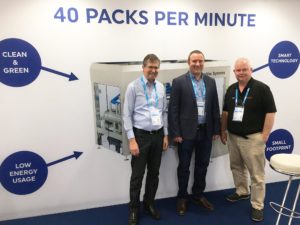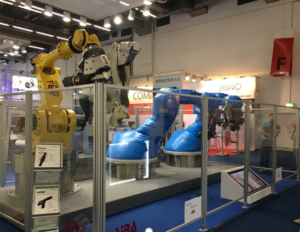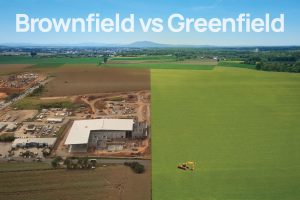It’s not every day most of us stop to think about the nitty gritty of our food processing systems, but at Wiley, we are always seeking a better way. Packaging machines, conveyor systems and contamination detectors machines are vital links of our food system; the vanguard protecting the community from destructive food waste and sickening contamination. The bounty of food we take for granted in every isle of every supermarket is in no small part due to the exceptional innovation going on in our food processing sector. This array of innovation is nowhere better on display than IFFA at the Messe Frankfurt in Germany, the world’s leading meat processing conference. Two of Wiley’s meat processing gurus attended the 2019 event to bring the world’s best meat processing innovations and knowledge back to Australia.
Wiley’s Jeff Marsden and Peter Thomson spent five days, visiting many of the 1000 exhibitors spread over the 110,000 m² of floor space. Jeff has almost 30 years of experience as a problem solver in the red meat industry. As one of Wiley’s leading experts on mat processing faculties, layouts and equipment, Jeff brings another level of experience and perspective to meat industry projects. Peter brings almost 40 years of experience as a design engineer to the Wiley team. Hailing from New Zealand, Peter has worked on beef industry projects in Australia, NZ and even the USA.
Here they share with us their top three technological finds from the event:

